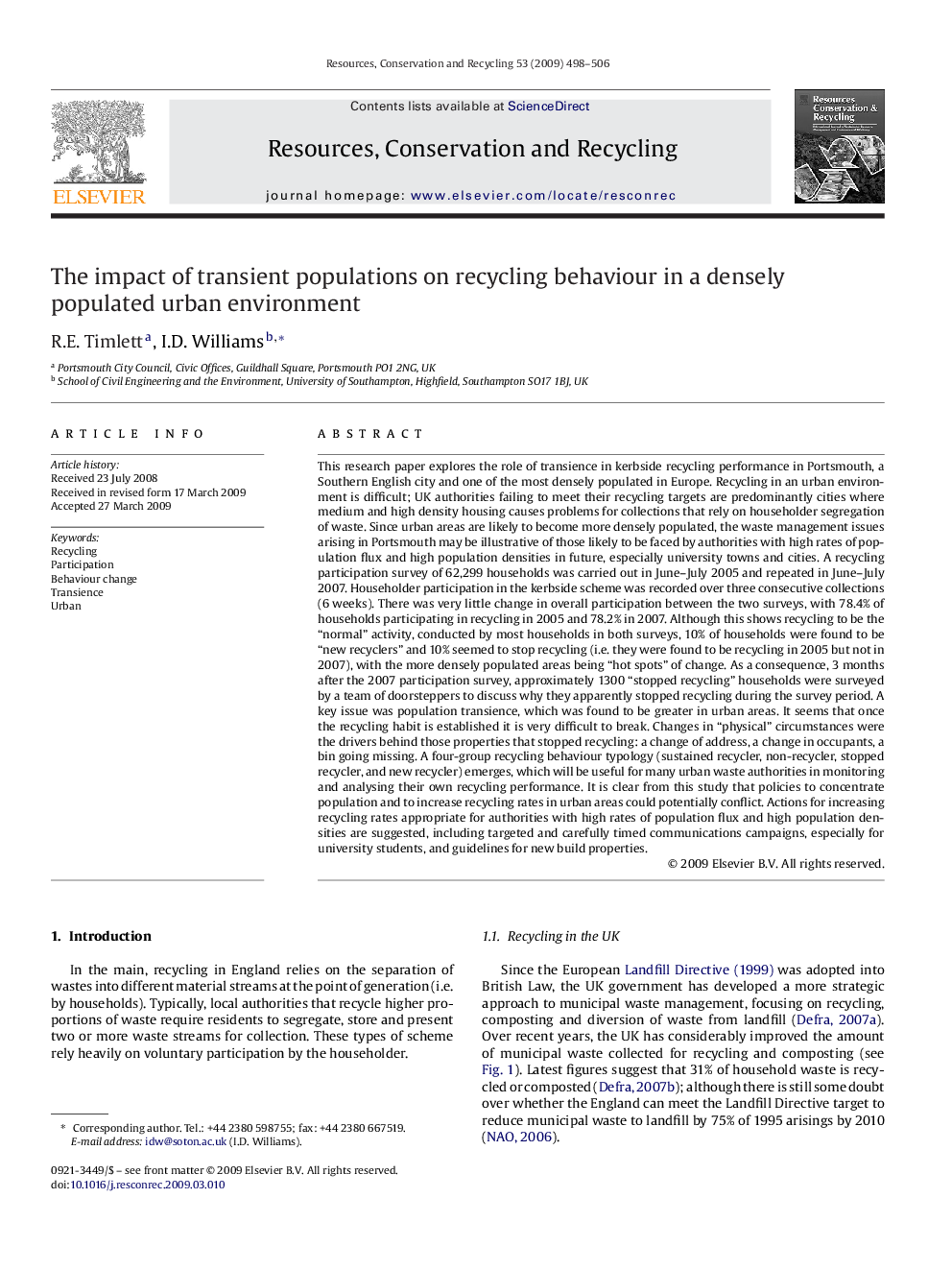| Article ID | Journal | Published Year | Pages | File Type |
|---|---|---|---|---|
| 1064057 | Resources, Conservation and Recycling | 2009 | 9 Pages |
This research paper explores the role of transience in kerbside recycling performance in Portsmouth, a Southern English city and one of the most densely populated in Europe. Recycling in an urban environment is difficult; UK authorities failing to meet their recycling targets are predominantly cities where medium and high density housing causes problems for collections that rely on householder segregation of waste. Since urban areas are likely to become more densely populated, the waste management issues arising in Portsmouth may be illustrative of those likely to be faced by authorities with high rates of population flux and high population densities in future, especially university towns and cities. A recycling participation survey of 62,299 households was carried out in June–July 2005 and repeated in June–July 2007. Householder participation in the kerbside scheme was recorded over three consecutive collections (6 weeks). There was very little change in overall participation between the two surveys, with 78.4% of households participating in recycling in 2005 and 78.2% in 2007. Although this shows recycling to be the “normal” activity, conducted by most households in both surveys, 10% of households were found to be “new recyclers” and 10% seemed to stop recycling (i.e. they were found to be recycling in 2005 but not in 2007), with the more densely populated areas being “hot spots” of change. As a consequence, 3 months after the 2007 participation survey, approximately 1300 “stopped recycling” households were surveyed by a team of doorsteppers to discuss why they apparently stopped recycling during the survey period. A key issue was population transience, which was found to be greater in urban areas. It seems that once the recycling habit is established it is very difficult to break. Changes in “physical” circumstances were the drivers behind those properties that stopped recycling: a change of address, a change in occupants, a bin going missing. A four-group recycling behaviour typology (sustained recycler, non-recycler, stopped recycler, and new recycler) emerges, which will be useful for many urban waste authorities in monitoring and analysing their own recycling performance. It is clear from this study that policies to concentrate population and to increase recycling rates in urban areas could potentially conflict. Actions for increasing recycling rates appropriate for authorities with high rates of population flux and high population densities are suggested, including targeted and carefully timed communications campaigns, especially for university students, and guidelines for new build properties.
